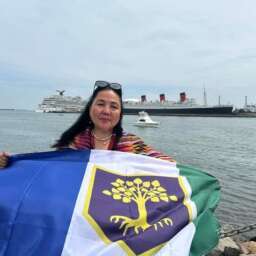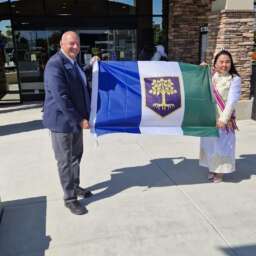The trade or exchange of goods and services between any two Countries is classed as international trade.
International trade therefore may for example involve the purchase and sale of goods and services by companies in different countries. Consumer goods, raw materials, food, and machinery all are bought and sold in the international marketplace.
Through international trade, countries can expand their markets and access goods and services that may otherwise not be available. As a result of international trade, the market is more competitive. This ultimately results in more competitive pricing and can sometimes enable consumers to access cheaper products and services.
If a company in one Country orders a product for example from another Country, they will receive delivery of the product against a payment.
The method and mechanism of payment is therefore critical to the trade choices that any Company will have to make. Availability of funds to settle the invoice is an important consideration and the ease of access to cleared funds would be a key consideration. This can be affected by the availability and ease of access to credit to finance the purchase. Therefore a key consideration would be the ease of access and transfer of funds to the supplier.
This means that both ease of access and ease of transmission or transfer are relevant and important in the trade process.
In the realm of international trade, opting for a major foreign currency such as the US Dollar (USD) over national currencies is a common practice and a number of factors or reasons are often sited as the underlying drivers for the practice.
1. Stability and Reliability
The USD is widely regarded for its stability and reliability, attributes that stem from the strong economic and political framework of the United States. African economies, which can sometimes experience significant currency fluctuations due to political instability, economic challenges, or external economic pressures, find a semblance of safety in the USD. Individuals and businesses may view this as counter productive but in the eyes of the participating businesses stability is crucial in minimising both foreign exchange and geopolitical risks including such risks associated with currency devaluations during the course of trade agreements. So whether people like the USD or not and whenever they wish to continue using it to trade or not, the one thing that is clear is that we can not talk away the practice. However African Countries can take actions and measures to minimise the business risks and pave the way for a different informed risk based practics which could see more and more local currencies being used in international trade and more so between the African Countries within the single market. The key challenges of ease of access and ease of transmission or transfer must be addressed through the implementation of an accessible financial transaction infrastructure to drive trade and exchange of value against goods and services. The African Kingdoms Lumi (AKL) is clearly a good contender and there are merits for adopting hybrid approaches involving a combination of underlying currencies or a basket for a more diversified exposure during trade which also offers the much needed stability and reliability.
2. Global Acceptance
The universal recognition of the USD facilitates its use in international trade as it is readily accepted across many Countries by many businesses. For African countries engaged in trade both amongst themselves and with the rest world, having a transaction medium that is globally accepted eliminates complex currency exchange procedures and encourages smoother trade operations. So a real contender for the USD for trade between Countries within the African continent needs to do more than wish away the USD as an instrument of trade. Steps need to be taken to put in place a medium of custody, transmission and acceptance that is easily accessible to individuals and businesses across all the countries within the African continent and the rest of the world.
3. Ease of Access to Credit
Access to credit can be pivotal for developing economies, and often, this credit is more readily available in USD. International financial markets and lenders tend to prefer transactions in US dollars owing to its widespread use and perceived stability. This makes it easier for African countries to obtain the financing necessary for large trade deals and developmental projects through USD denominated credit. This ease of access needs to be extended to continental African Currencies. The current situation is that many African countries do not borrow from each other or at least do so to a much lesser extent when compared to their readiness and willingness to access USD denominated credit to finance international trade transactions. So the ease of access to credit denominated in other African Currencies by businesses in other Countries is rarer and likely more difficult to secure when compared to USD denominated credit. If ease of access to credit can impact the ability to pay for products and services in international trade, then the credit environment and ease of access and transmission of credit and payments denominated in continental African currencies must improve for meaning progress to be attained in their use in fulfilling the settlement of international trade obligations.
4. Influence of Trade Partners
The trading strategies of Africa with major global economies like the US, China, and countries within the European Union also play a significant role. These powerful economies often conduct transactions in USD, influencing and often requiring African nations to keep USD denominated reserves to facilitate trade without the hindrances of needing currency conversions for every transaction. In order to address any challenges imposed by Trade Partners, African Countries need greater collective influence on the International Trade stage. Such influence will bring greater choice and better and fairer policies including the capacity to influence the currency of choice in their trade transactions. Africa must look inward for solutions to address their trade needs as they embark on trading more with each other within the single African Continental Free Trade Area (AfCFTA).
5. Reducing Transaction Costs
By unifying transactions under one widely accepted currency such as the African Kingdoms Lumi (AKL) for example, African nations can significantly cut down on the transaction costs that come with currency exchanges. For countries with less robust financial systems, this is a critical strategy for minimising costs and fostering more effective trade partnerships across the continent thereby paving the way for more cost effective trade within the single market.
6. Encouraging Foreign Investment
Using a currency such as the USD makes a country’s market more accessible to investors who might otherwise be hesitant due to concerns about currency risk. This opens up opportunities for direct foreign investment and promotes inflow of capital which is crucial for economic development. However with the wealth of resource across the African Continent, there must be capacity for investment flows from other African Countries without always relying on external investment denominated in USD. This diversification of investment flows could improve the ease of access and use of one continental African currency in other Countries to begin the process of delivering home grown alternatives or adopting the African Kingdoms Lumi to bridge the gap with a viable alternative.
7. Economic Strategies and Monetary Policy
For some African countries, there is a school of thought that using the USD aligns with broader economic strategies and monetary policies aimed at stabilising their own economies. By pegging their currencies to the USD or maintaining large reserves of it, they believe they can help control inflation and manage exchange rates more effectively but this is often an illusion. In the long run, it is ultimately the productive capacity of the economy and its ability to grow and meet the demand for the goods and services it produces that will drive the demand for its currency and inevitably the rate of exchange between the USD and their currency. So quite contrary to the expectation of enjoying economic strategies and monetary policy benefits to maintaining a currency peg with the USD, the developing economies which attempt to do this will leave themselves wide open and remain vulnerable to the real possibility that their local economic dynamics will be driven by foreign economic policies transmitted via the USD where the prevailing interest rates may be completely inappropriate for the local economic environemnt leaving the local monetary authorities completely incapacitated to effect and control their own monetary policies in a manner that is needed for impactful economic growth.
Conclusion
The adoption of the US Dollar by African countries for mutual trade is underpinned by various strategic advantages some of which may have long lost their validity and more options have become available in recent times including the emergence of digital currencies. From enhancing trade stability and reducing operational costs to facilitating easier access to international credit, the USD has been seen for decades by many as a valuable instrument for economic transactions across borders. This practice supports not only the streamlining of trade but also broader economic objectives within the African continent. However this is currently not the only alternative open and available to AFrican Countries. The African Kingdoms Lumi (AKL) is a sound alternative. Strategic steps and actions however need to be taken to embrace and affect the use of available alternatives for the benefit of continental African economic growth and long term prosperity.















Get involved!
Comments